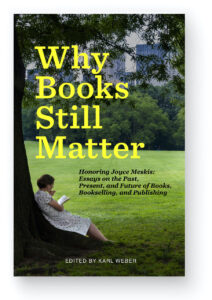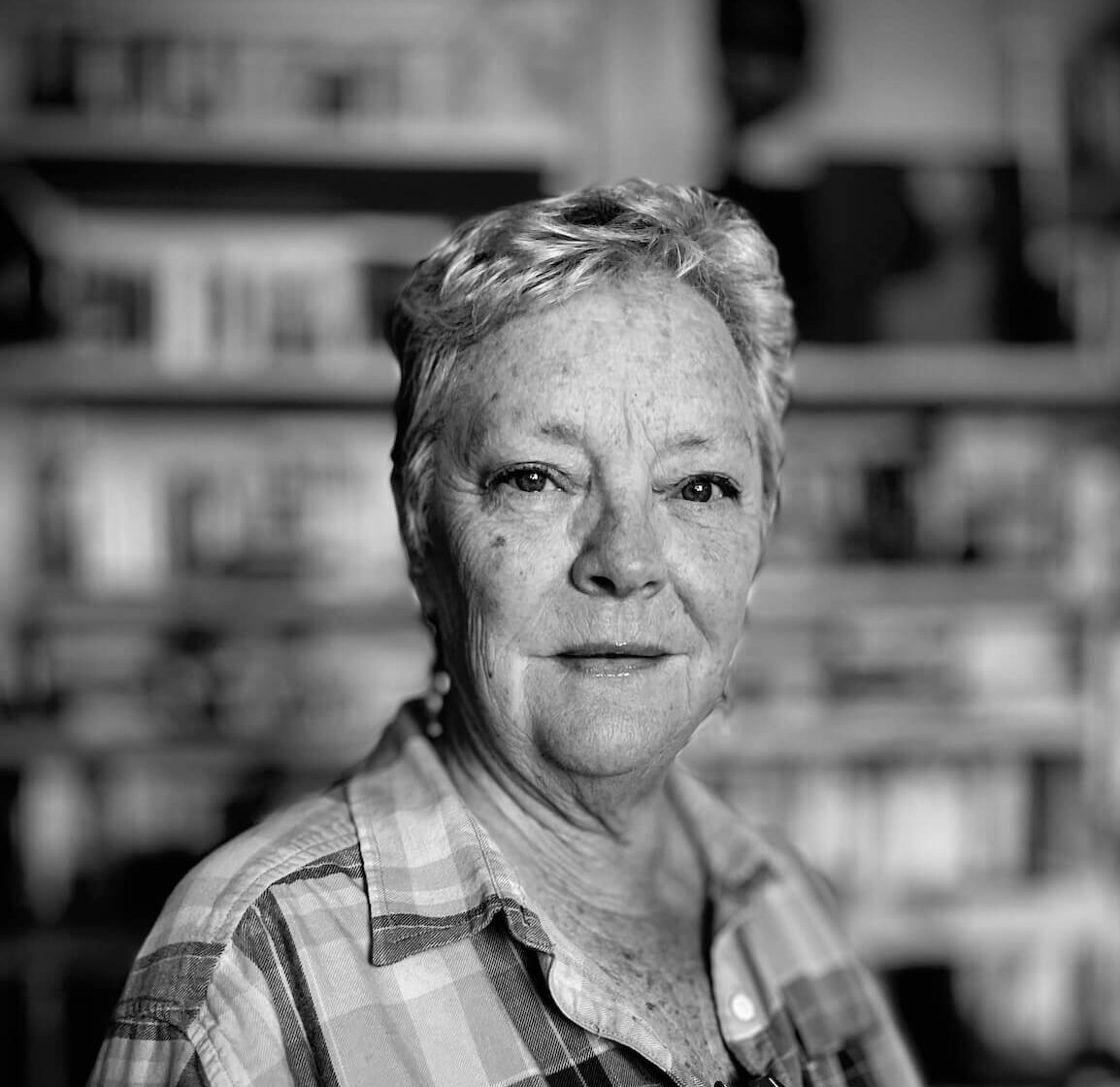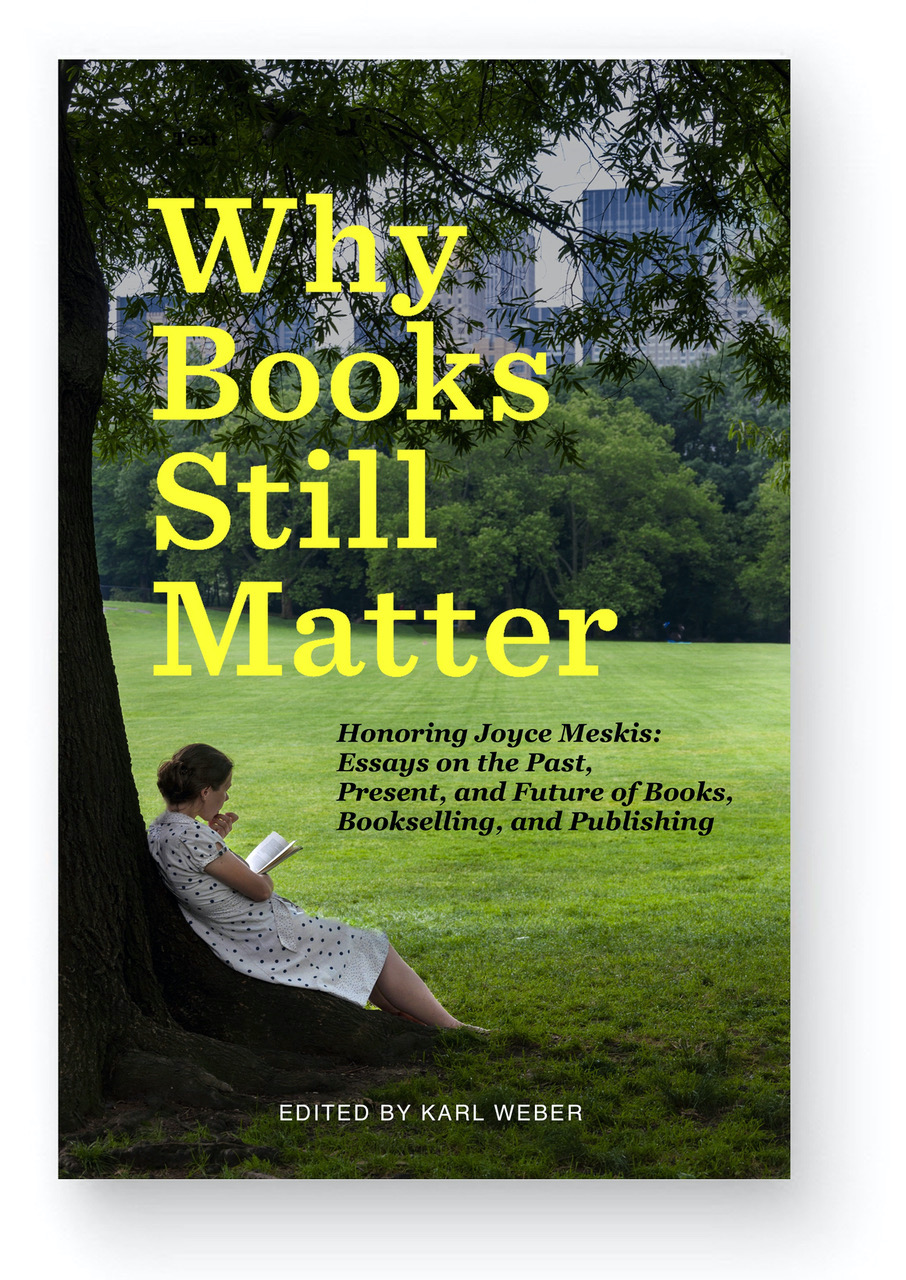Why books still matter
A conversation with publisher Karl Weber on his tribute to Joyce Meskis, the state of publishing and the responsibilities of readers
A conversation with publisher Karl Weber on his tribute to Joyce Meskis, the state of publishing and the responsibilities of readers
“If books didn’t matter nobody would try to ban them.”
This piece of book jacket copy speaks volumes. The back cover in question is New York publisher/editor Karl Weber’s Why Books Still Matter: Honoring Joyce Meskis: Essays on the Past, Present, and Future of Books, Bookselling, and Publishing, published this year in honor of Tattered Cover founder and First Amendment rights champion, Joyce Meskis.
Weber has enjoyed a long affiliation with the Denver Publishing Institute, which led him to Meskis and the renowned Tattered Cover. He came to know her, as did so many, as “a friend to authors, an advisor to publishers, an advocate for readers, and a courageous defender of freedom of expression … as well as a gentle soul with an open mind, a wry sense of humor, and a generous heart.” Meskis died in December 2022, leading Weber to consider how to memorialize her work. This book became his tribute to her.
(Tattered Cover, after 53 years operating as an independent business, this summer sold its five remaining locations and inventory to Barnes & Noble, the nation’s largest brick and mortar retail bookseller.)
In addition to many loving tributes to Meskis, including one by U.S. Senator John Hickenlooper, Weber’s book dives deeply into the role of booksellers in our culture, the evolution of publishing, the book business in the U.S. and the ongoing fight by book champions for the freedom to read—a key liberty in a healthy democracy.

Karl Weber
In a telephone conversation this summer, Weber talked about changes in the publishing world, the ways in which booksellers are adjusting to realities in the book world and “what the roots of success in the future will involve.”
Some of the biggest changes in publishing center around corporate consolidation, something Weber said people in the publishing world have been talking about since he first entered that arena in the 1980s.
“The big five mainstream publishers, likely to become the big four, now control a much larger swath of mainstream publishing in the U.S. than in the past,” he said. “Big companies try to enjoy the best of both worlds [with their many imprints], some of the creativity and flexibility of a small company combined with economic clout that vast size gives you.”
The problem is the economic pressures that go along with being part of a big conglomerate, pressure “to produce profits at an acceptable level.
“That’s hard to do in book publishing,” Weber said. “[In book publishing], thousands of new products are made every year and each one is truly unique. There’s no way to do a market test on a book except to publish it.”
Combine that uncertainty with the demands of public ownership and shareholders demanding a big return on their money, and publishers become more risk averse. It becomes harder for an author to find a commercial publisher for worthy books, Weber observed.
“I’ve seen books that 20, 25 years ago, would have found a home with a big publisher, rejected because they can’t guarantee sales,” he said. “Big publishers have become more like Hollywood studios, pressured into a blockbuster mentality. Let’s do a book on what’s really just a variation on what came out next year.”
In response, small hybrid publishers like Weber’s Rivertowns Books that publishes mainly business titles, are multiplying “to fill the gap between what big commercial publishers are able to do and readers who demand a wide variety of books and something beyond celebrity.”
On the flip side of corporate consolidation is the phenomenal rise of publishing on demand since the creation of the internet, altering the book world in ways never imagined by traditional publishers.
While self-publishing and subsidy publishing have increased the number of books on the market phenomenally—“It’s easier than ever to get into print,” Weber said— it’s difficult for those books to gain traction in a fragmented media world. Nonprofit publishers, nonprofit financing sources, foundation funding and experimentation with new models is ongoing now, Weber observed, “and it’s crucially important.
“How to find the right material, how to get the best material in front of citizens is a challenge for our whole society,” he said.
The demand for traditionally published and widely distributed books that represent a broader swath of American society has been established and it’s growing, Weber said, an encouraging turn. New York publishers “got serious” about increasing diversity around the time of the pandemic and created new imprints to give voice to underrepresented groups.
“Great new authors emerged, bestsellers were produced, but my friends of color in the industry said, ‘Let’s wait and see, when  they’re pressured by their owners to produce more sales, which will be the first imprints to shut down?’” Weber said.
they’re pressured by their owners to produce more sales, which will be the first imprints to shut down?’” Weber said.
“I’m hoping the inroads that have been made continue, that we’re not going to let them be eroded and washed away. I want the next generation of young people to look at the bookshelves and online book lists and see themselves represented, no matter their background. I want young kids to be able to go to the school library and have a teacher introduce them to the whole range of human experience.”
That, of course, requires a citizenry that stands up for freedom of expression and allows teachers, librarians and booksellers to introduce readers to that wide range of experience. Independent booksellers, growing in number over the past few years, are taking on a larger role across the country as meeting places, community centers and hubs of activity related to books.
All of which leads us back to Joyce Meskis, an entrepreneur in bookselling who made her stores destination points in Denver, and who constantly fought banning of books and attempts to censor. What can we as readers do to continue that work?
Weber counsels that first, citizens must put current attempts to censor and ban books in a historic perspective, understanding that we’ve been through this before and it’s not a problem that can be solved once and for all. Confronting a minority of people organized so they can impose their perceptions, their sense of right and wrong on the general population is nothing new. But citizens have a lot of ability to impact these issues and help protect freedom of expression, Weber said.
“It does involve work. It’s not enough to like someone or post on Facebook, though that’s a good starting point,” he said. “One of the reasons that book banners have been successful is they’re organized, they run for school board, they get on the local library board, they attend meetings of these organization, taking a minority perspective and giving it some of the clout that the majority should have. I know everybody’s working hard taking care of their families and that life is demanding but dedicating a few hours each month to attend a meeting, to speak up on the values that matter to them makes a difference.”
Buying books matters too.
“Books are still the best bargain in terms of your entertainment and information dollar,” Weber said. ”Visit your local bookstore as a part of your routine. Read to your kids. Encourage the next generation to become avid readers because there are things we can glean from books that we can’t get from any other source.”
It’s tough making a living as a writer, he pointed out. Spending $20 on a book matters to them and their important work as well.
“You’re encouraging and making possible the creative work that enhances our lives,” he said.
At the bottom of the back cover of Why Books Still Matter, another important statement follows the congratulatory blurbs: ALL PROCEEDS FROM THE SALE OF THIS BOOK WILL BE DONATED TO THE AMERICAN LIBRARY ASSOCIATION OFFICE FOR INTELLECTUAL FREEDOM.
Click here for more from Kathryn Eastburn.

